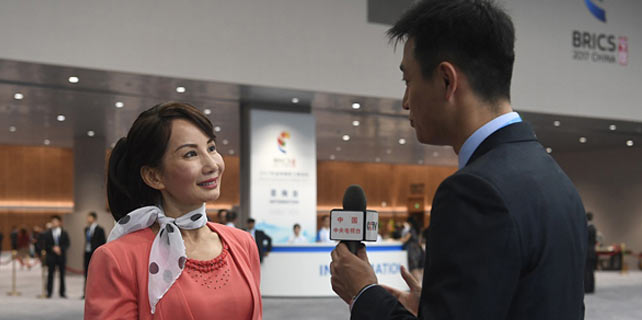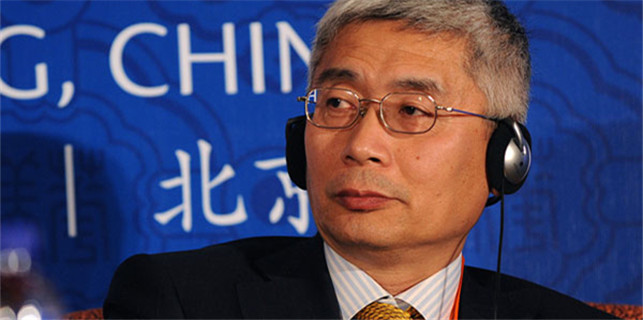A more inclusive approach to selling fashion
Once an exclusive event for those within the fashion industry, this year's Oct 11 to 18 Spring Summer Shanghai Fashion Week (SHFW) was one that focused more on tapping into the spending prowess of China's millennial generation through inclusive activities away from the main event venue.
Luxury brand Ports 1961 extended its runway to the cross-section of Nanjing Road West where models parading its latest creations could be seen by pedestrians at the busy intersection.
Chen Xuzhi, a 25-year-old Chinese designer whose stock is quickly rising in the fashion world, chose to throw a pajama party in a W Hotel suite to showcase his 2018 Spring Summer collection so as to allow more people to preview his works in a laid-back and fun environment.
The organizers of SHFW also expanded the capacity of this year's event to accommodate more guests, while a sister event called Fashion Weekend was held at the Shanghai Postal Museum for three days to boost the exposure level of the annual fashion extravaganza. The event comprised spaces for retail, exhibition and catwalks, and was expected to draw 30,000 visitors.
The "See Now Buy Now" concept was first popularized in 2016 by luxury brands as a way of staying relevant in the digital age where consumers demanded more immediacy in procuring products. Many brands started to make their new collections available to the public just one day after displaying them on the runways of SHFW.
Brands and companies outside the fashion industry were eager to be part of the action, too. Pepsi, which has been the beverage sponsor of the SHFW for the past four years, collaborated with renowned American Chinese fashion designer Alexander Wang to create a new packaging for its sugar-free drink.
The all-black slender can is available at Pepsi's self-run e-commerce store together with other crossover products such as bicycles and sneakers.
Launched by the China office of the US beverage company in June, the Pepsi e-store auctions, instead of sells, its products in exchange for virtual coins collected by scanning the QR codes printed on Pepsi cans and bottles sold in China.
Industry players have hailed Pepsi's campaign to use e-commerce and collaborate with pop culture icons as a successful move to connect with China's young digital-savvy generation.
Heytea, the company known for its cheese-topped tea that has been selling like hotcakes since the beginning of this year, also partnered local fashion designers during SHFW. Five Chinese designers including Wang Haizheng, the winner of the 2012 UK Fashion Fringe Competition, were invited by Heytea to design five different cup covers.
The beverage company also set up a pop-up store called Light Cube on the Bund where the five designers showcased their latest collections.
xujunqian@chinadaily.com.cn
















